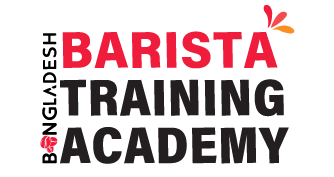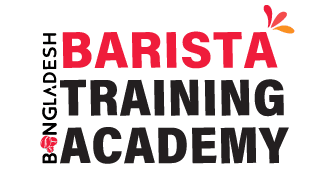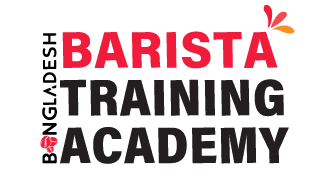Barista Courses and Opportunities
What is a Barista Course? Types of Barista Courses and Opportunities
What is a barista
before we dive deep into the aspects of Barista Courses and Opportunities, we should know what a barista is. A barista is a person who prepares all types of coffee. especially in coffee shops and cafes. They specialize in espresso-based coffee drinks. Like latte. cappuccino and macchitaos. A professional barista masters the coffee machines, milk frothing, and balanced flavor valuation. In recent years, coffee culture has become an integral part of modern life. With specialty coffee shops cropping up on every corner, there is an increasing demand for skilled baristas who can craft the perfect cup of coffee. But how do you become a professional barista? That’s when a professional barista course comes into play. This article will dive deep into what a barista course is, why you should consider enrolling in one, and the career Barista Courses and Opportunities that await those who complete it.
What is a Barista Course?
A barista course is a structured specialized program designed to teach individuals the art and science of coffee making. It teaches the specialized skills needed to work as a professional barista in coffee shops, cafés, or other hospitality settings. Baristas are the skilled professionals behind the espresso machines in coffee shops, and their craft requires more than just pressing buttons. A professional barista course covers both theoretical knowledge and practical techniques related to coffee making, equipment use, and customer service. Barista courses can range in duration and complexity, with some lasting only a few hours and others extending over several weeks or months. The main goal of these courses is to equip learners with the practical skills and theoretical knowledge they need to excel in a café environment.
Key Components of a Barista Course:
- Coffee Origins and Varieties: A barista course typically begins by introducing students to the world of coffee beans. You’ll learn about the different coffee-growing regions, such as Ethiopia, Colombia, and Brazil, and how factors like climate and altitude influence the flavor profiles of coffee beans. This fundamental knowledge helps baristas recommend the best beans to consumers according to their preferred taste preferences.
- Espresso Basics: At the heart of every great coffee is the espresso. Barista courses will teach you how to pull the perfect espresso shot, paying attention to grind size, water temperature, and extraction time. Understanding the espresso machine, grinding beans to the right consistency, and extracting espresso shots with precision.
- Milk Steaming and Texturing: learning how to steam and texture milk is crucial. A barista course will teach you how to create silky microfoam that blends seamlessly with espresso, enhancing both the texture and flavor of the coffee.
- Latte Art: The most visually appealing aspect of coffee is latte art. One of the most visually pleasing parts of working as a barista is creating lattes. While it may seem like a frivolous skill, learning to create latte art is an essential part of customer service. It successfully showcases the barista’s expertise and attention to detail in his work. Most barista courses will cover basic designs like hearts and rosettas, giving you a solid foundation to build upon.
- Coffee Brewing Methods: Exploring various brewing methods like pour-over, French press, AeroPress, and siphon brewing. A professional barista Masters all the various types of coffee brewing methods.
- Equipment Handling and Maintenance: Espresso machines and grinders are sophisticated complex pieces of equipment that require continuous cleaning and maintenance. Barista courses will teach you how to properly calibrate your complex equipment, ensuring that every shot of coffee is consistent and high-quality.
- Customer Service and Workflow Management: Being a barista is about more than making coffee. It also involves interacting with customers, managing orders, and maintaining a fast-paced workflow in busy coffee shops. Many courses offer training in customer service, teaching you how to provide personalized coffee recommendations and handle challenging situations with grace.
Types of Barista Courses
There are different types and specializations when it comes to barista training. Depending on both your skill level and career goals. Most of the Barista course concepts are featured in three levels. Such as beginner, intermediate, and advanced levels. Beginner courses focus on the fundamentals, while intermediate and advanced courses delve deeper into coffee chemistry, advanced brewing techniques, and barista management skills. Here’s a list of what you may learn depending on the level of course you’re willing to take:
- Beginner Barista Courses
If you’re new to the world of coffee-making, a beginner barista course is the perfect starting point. Beginner courses are suitable for those willing to work in a café or simply want to learn how to make better coffee at home. Beginner courses focus on teaching the fundamentals, such as:
- Introduction to espresso machines and grinders.
- Basic espresso extraction.
- Milk steaming techniques.
- Simple latte art.
2. Intermediate barista course
An intermediate barista course covers all the things from basic and pushes them to the next level while adding more coffee complexity to learn, such as:
- Espresso extraction and calibration
- Milk steaming techniques for latte art
- Advanced coffee brewing methods (pour-over, Aeropress, Chemex)
- Coffee flavor profiling and tasting
- Equipment maintenance and troubleshooting
3. Advanced Barista Courses
Once you’ve mastered the skills, an advanced barista course takes your skills and hones them to the next level. These courses are designed for individuals who already have experience and want to fine-tune their techniques. Advanced courses may also include customer interaction training and café management skills for those aspiring to open their own coffee shop. In an advanced barista course, you will learn:
- Advanced espresso techniques, including grind adjustment and dosing.
- Complex latte art designs.
- Alternative brewing methods, such as Chemex, V60, and siphon brewing.
- Troubleshooting common coffee-making issues.
- Customer service and communication skills
- Workflow efficiency and time management
- Café management and inventory
Why You Should Do a Barista Course
There are many reasons to enroll in a barista course, especially if you’re passionate about coffee or considering a career in the hospitality industry. Here are some compelling reasons why you should invest in a barista course:
1. Professional Skill Development:
If you aim to work in a coffee shop or even start your own café, having formal training will set you apart from the competition. Completing a barista course shows future employers that you’ve acquired the skills and knowledge necessary for a fast-paced coffee environment.
2. Enhance Your Coffee Knowledge:
Whether you’re a coffee enthusiast or a budding professional, a barista course deepens your understanding of coffee from bean to cup. You’ll learn about different brewing methods, coffee origins, and how to assess the quality of coffee beans. This knowledge not only improves your skills as a barista but also enhances your personal coffee-drinking experience.
3. Start Your Own Coffee Business:
Many people dream of opening their own café, and a barista course is an excellent first step toward realizing that goal. Understanding the ins and outs of coffee preparation, customer service, and equipment management will give you a solid foundation for running a successful coffee shop. Some advanced courses even offer training in business operations, covering topics like menu design, pricing strategies, and marketing.
The Career Opportunities After Completing a Barista Course:
The coffee industry is diverse, offering a range of career opportunities for those with formal barista training. Here are some of the potential paths you can follow:
1. Café Barista:
The most obvious job after completing a barista course is working as a barista in a coffee shop. Many coffee shops are on the lookout for skilled individuals. who can handle a high number of orders while maintaining consistent quality. The average salary for baristas varies by location, but the experience you gain can open doors to more advanced roles.
2. Head Barista or Café Manager:
With experience, many baristas move into leadership roles. A head barista is responsible for overseeing the daily operations of the café. while training new staff and maintaining the consistent quality of the coffee. Café managers take on additional responsibilities, such as scheduling staff, managing budgets, and ensuring customer satisfaction.
3. Coffee Roaster:
Roasting coffee is an art form in itself, requiring a deep understanding of coffee beans and how to bring out their best flavors. Baristas with a passion for coffee science can transition into roasting, working for coffee roasteries, or starting their own roasting business.
4. Coffee Trainer:
Experienced baristas may choose to become coffee trainers, teaching others the skills they’ve acquired. Trainers often work for coffee schools, large café chains, or independent training programs, helping new baristas develop their skills.
5. Specialty Coffee Consultant:
For those with extensive knowledge and experience in the coffee industry, becoming a consultant is another career option. Consultants help new coffee businesses get off the ground, advising on everything from equipment selection to menu creation.
Final Thoughts regarding a barista course
A barista course is an invaluable investment for anyone interested in coffee, whether you’re looking to start a career in the coffee industry or simply want to enhance your coffee-making skills. With the growing demand for high-quality coffee and skilled professionals, a barista course opens up numerous job opportunities and path for future success. Whether you dream of perfecting latte art, mastering espresso brewing, or managing a café, a barista course can help turn your passion for coffee into a fulfilling career.





